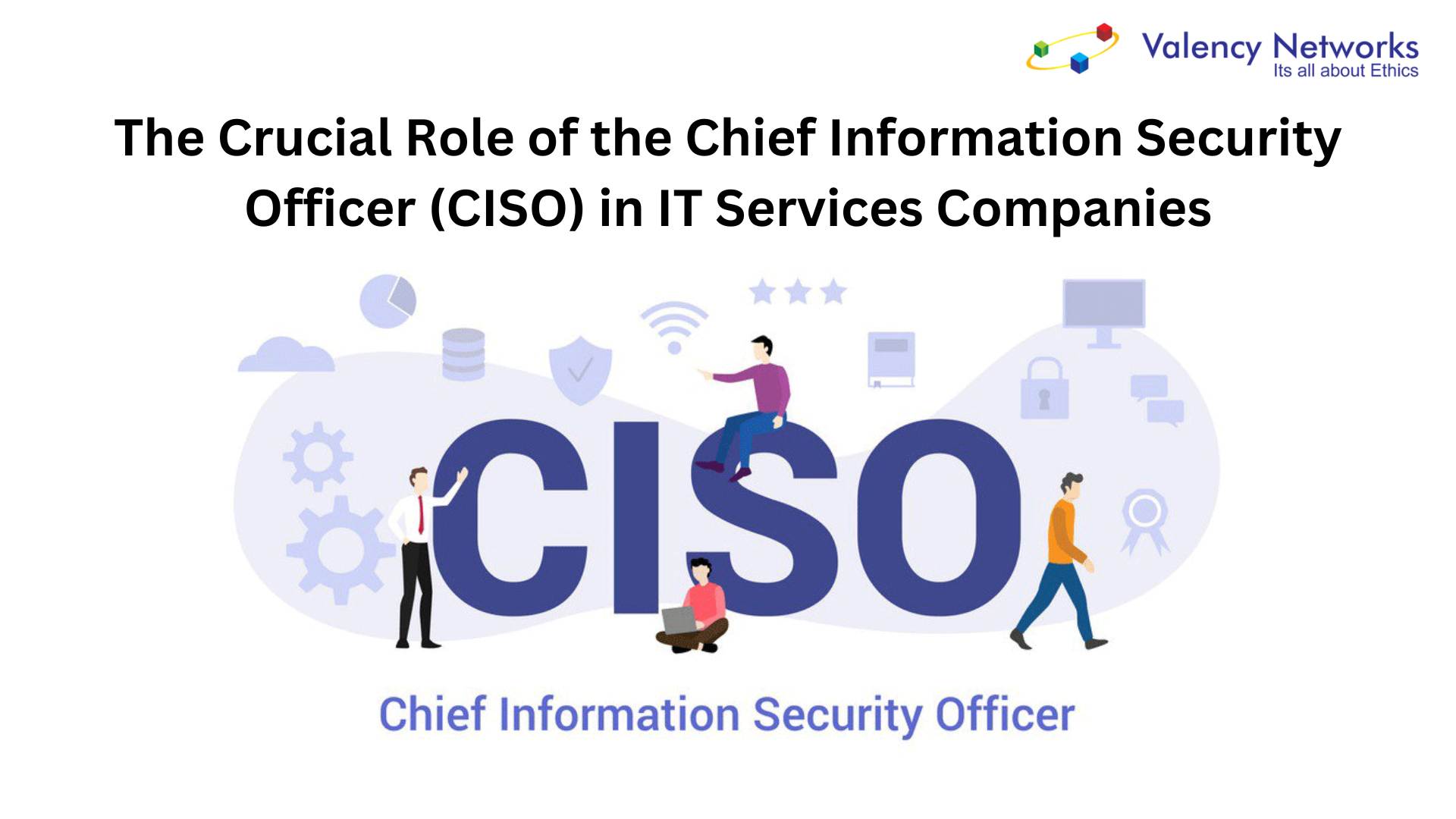- DORA Compliance – A Complete Guide by Valency Networks - 31/01/2025
- Is ICMP Timestamp Request Vulnerability worth considering - 31/12/2024
- Understanding Threat Intelligence in ISO 27001-2022 - 21/11/2024
Introduction
In today’s rapidly evolving digital landscape, the role of the Chief Information Security Officer (CISO) has become indispensable, particularly in IT services companies. As organizations increasingly rely on technology to drive their operations and serve clients, the need for robust cybersecurity measures has never been greater. This article delves into the significance of the CISO role in IT services companies, highlighting why their expertise and leadership are essential for ensuring data protection, client trust, and business success.
- Safeguarding Sensitive Data
IT services companies handle a vast amount of sensitive information, including proprietary client data, financial records, and intellectual property. Protecting this information is paramount to maintain trust and credibility. The CISO plays a pivotal role in establishing and implementing comprehensive security strategies, ensuring that data breaches and cyberattacks are thwarted. Their expertise helps in identifying potential vulnerabilities and developing proactive measures to mitigate risks.
- Compliance and Regulatory Adherence
In the IT services sector, compliance with various data protection and cybersecurity regulations is a critical component of business operations. The CISO is responsible for staying up-to-date with evolving regulatory requirements and ensuring that the company adheres to them. This includes GDPR, HIPAA, and industry-specific standards. Failure to comply with these regulations can result in severe legal and financial consequences, making the CISO role indispensable.
- Preserving Client Trust
Trust is the foundation of any successful IT services company. Clients entrust their sensitive data and IT infrastructure to these firms, expecting that their assets will be protected. The CISO is instrumental in establishing and maintaining this trust by demonstrating a commitment to cybersecurity excellence. Their presence assures clients that their information is in capable hands, contributing to long-term client relationships and business growth.
- Incident Response and Recovery
Despite all preventive measures, cybersecurity incidents can still occur. In such cases, a well-defined incident response plan is essential to minimize damage and recover swiftly. The CISO takes a leading role in developing and testing these plans, ensuring that the organization can respond effectively to breaches, minimize downtime, and protect its reputation.
- Identifying Emerging Threats
Cyber threats are constantly evolving, becoming more sophisticated and unpredictable. The CISO’s role includes monitoring the threat landscape, identifying emerging risks, and adapting security measures accordingly. By staying ahead of cybercriminals, the CISO helps the IT services company prepare for future threats, preventing potential breaches and data loss.
- Employee Training and Awareness
Human error remains a significant factor in cybersecurity incidents. The CISO is responsible for creating a culture of security within the organization, which includes educating employees about best practices, potential risks, and the importance of cybersecurity. By fostering a security-conscious workforce, the CISO reduces the likelihood of internal security breaches.
- Cost Savings and Risk Mitigation
Investing in robust cybersecurity measures, under the guidance of a CISO, may seem expensive. However, the cost of a data breach or cyberattack can be far more significant in terms of financial losses and reputational damage. The CISO’s role includes assessing risks and ensuring that security investments are targeted and cost-effective, ultimately saving the company money in the long run.
Conclusion
In an era where data breaches and cyber threats are constant, the role of the Chief Information Security Officer (CISO) is indispensable in IT services companies. They are not just responsible for safeguarding data and ensuring compliance but also for maintaining client trust, managing incident response, and proactively addressing emerging threats. The CISO’s expertise and leadership contribute to the company’s success by reducing risks, saving costs, and securing its place in a competitive market. In today’s digital age, an IT services company without a competent CISO is not only vulnerable to cyber threats but also at risk of losing client trust and credibility.

